It should not be much of a surprise that, as someone who spends a lot of time playing and writing about retro games, I would also be a fan of Game Center CX. It’s a wonderful TV show, and one that I will frequently watch to relax and enjoy a few laughs while remembering old games I like. Something about a self-deprecating, middle-aged comedian struggling through games on a monitor with severe input lag is extremely appealing. Also, something that can never be done outside of Japan, at least not in the states; we’re too angry and over-the-top. The closest we’ll ever get to an American Arino is Jerma.
I mention all of this because there was a Nintendo DS game loosely based on the show. A game that had just about every reference to it being based on a show completely removed when it was released outside of Japan. Game Center CX became the generic sounding Retro Game Challenge. So, you know, better give out the hot take that Game Center CX is a good show before I actually get started.
Nostalgia is a hell of a thing. Hell, this entire site’s continued existence is due to a combination of nostalgia and a love of the “good ol’ days.” This bittersweet emotion you feel pouring over old memories, even if it’s a memory as small and insignificant as remembering old pieces of media, because those small memories open up and reveal bigger memories. Listening to an old album that will then remind you of a cool Summer night twelve years ago. Watching a movie that you saw with some friends, and remembering that afternoon would be the last time you ever got to see one of them again, and you wish you could have said literally anything else to her when you had to say goodbye. Games are no different when it comes to forming memories that last you a lifetime. Communities and bonds form over these things. The most fun I’ve ever had with competitive fighting games was when I would spar with friends for hours, learning how to deal with match-ups, pulling off combos with more consistency, and the most important thing: spending time with someone I care about. I thought Overwatch was fucking dogshit, but I played it for a year straight because it meant I got to hang out with a bunch of friends. Of course, not everything leads to a positive memory, but I think I’ll stick to that positivity for this piece, because it is a feeling that Game Center CX (as I will be calling the game throughout this piece) fosters. Also, I don’t think people need to know that I’ve never been able to play Star Gladiator on the Playstation past my teen years because [INCREDIBLY TROUBLING STORY OF PARENTAL ABUSE REDACTED].
GCCX at its outset asks you one thing: do you remember being a kid, playing games (in this case, NES games) with your friend? Do you remember one of you manning the controls, while the other gave encouragement, advice, read secrets from game magazines, or gave some mild roasting? Remember dedicating whole weekends to a particular game, staying the night at your friends’ house sometimes? If you do, then this is a game meant to appeal to you. There is a small bit of story involving a digitized Shinya Arino sending you back in time to the 80s to complete various game challenges he gives you, but this is irrelevant, and takes a backseat to everything else this game has to offer.
Game Center CX presents you an ever-growing list of fake NES games to play through. Close to stuff you remember, but not quite. You have games based off of Galaxian, Ninja Jajamaru, Star Soldier, Dragon Quest, and so on. Robot Ninja Haggleman is my favorite. What’s neat is that these are complete games, with a beginning and an end, rather than the expected mini-game collection ala Wario Ware. They’re short, ranging from 4 to 8 levels long, but that’s not too different in length from a lot of independent throwback titles that come out now; the kind of games you can sell on Itchio or Steam for five or ten bucks today and probably make a nice chunk of change from it. Each game is a representation of different period of the 80s, with the sudden jumps in technology allowing games to be more ambitious and complex. You have a basic single screen shooter to represent when the Famicom couldn’t support screen scrolling. Then you get games with horizontal scrolling, then vertical, then both. The games get better graphics over time. Games start getting RPG elements added to them after the success of the actual in-game RPG. There’s even an advertisement tie-in game meant to reference Kaettekita Mario Bros. All while you play these games, Arino as a child cheers you on, and talks to you about all the hottest new game news.
The games themselves are good, and would be worth playing on their own merits. As you complete challenges and progress through the story, Arino buys new issues of GameFan (not the GameFan, merely a GameFan) magazine that you can read at any time. They have all the things magazines of the era had: news, short reviews, a mailbag, sales figures, cheat codes, even a letter from the editor. Granted, they aren’t full-length publications and only serve to add flavor, but they’re still neat. In the Japanese release, the staff were cast members of the Game Center CX show, and that was the joke. Here, they’ve all been replaced by actual game writers, like James Mielke or Dan Hsu. That’s great, whatever, but that’s not the big deal. No, the big deal is that they got my man, the main man, Dave Fucking Halverson in this game.
Folks, I cannot tell you enough just how influential this man and his magazine was on my interest in games. As a kid, I had a subscription the to real Diehard GameFan magazine. I would read, and re-read, each issue, pouring over games that I would not be able to play for at least another twenty years. GameFan listed goddamn Tail of the Sun as a game of the month! I saw a two-page spread for Welcome House back in 1995, and I was gagging to get my hands on that game, which I couldn’t until the mid-2010s because the ROM was impossible to find. Because of GameFan, Symphony of the Night was the second biggest reason I wanted a Playstation (right behind Final Fantasy VII), during a time when other magazines were tearing SotN a new asshole because it wasn’t in 3D. Seeing Dave Halverson in this game all about retro nostalgia triggered something in me when I replayed it during a big DS ROM downloading spree.
I always feel weird outright saying that I like the “good old days.” There’s this movement where alt-right fuckheads will post shitty 80s nostalgia art and say shit like REMEMBER THE NINJA TURTLES? REMEMBER BACK TO THE FUTURE? REMEMBER NINTENDO? REMEMBER WHEN GAMES WEREN’T SO POLITICAL? REMEMBER WHEN THE BLACKS AND THE JEWS AND THE PRONOUN POLICE WEREN’T RUINING WESTERN CIVILIZATION? It’s fucking obnoxious, and it dilutes this very real fact that, fuck dude, things used to be much better!
I own a physical copy of this game. I went to a store and bought a copy of Retro Game Challenge, which is sitting on a shelf in my room. I own this game. The cartridge is not some physical DRM that I merely bought a license for, and will have to sit through potential hours of updating the second it touches my console. Do you remember when you had ownership over a thing you bought? Remember when if you wanted to play a game, you simply put it into your console and played it, because it wasn’t some service game bull shit full of loot boxes that gets shut down in a year? Remember when it didn’t cost nearly 80 bucks (Earthbound and Phantasy Star IV being notable exceptions) and a two year waiting period for the most mid-level trash that will be forgotten about in less time than it took for me to write this sentence (hey, Ghosts of Tsushima, how you doing?)? Remember when everything coming out wasn’t a fucking remake? Remember when digital games started becoming a thing, and they weren’t a legitimate 100 fucking gigabytes in size? Remember when there were games that weren’t literal propaganda for the US military and the many war crimes it has committed? Remember when you can read good publications like GameFan or Video Games magazine? Remember when games writers were people who actually liked the subject they were paid to write about, and not a bunch of centrist hacks who are mad they couldn’t land a gig writing snarky political commentary for Esquire or Rolling Stone, so they had to settle on a medium of “children’s toys” they openly despise, and this is somehow the fault of every transgender woman on Earth? Things used to be better! They used to be better.
Now, I will say that not everything is bad these days, nor was everything great back then. The internet has allowed small-time independent creators to release their own games without the need of a publishing company. This is great, because this has allowed us all to experience Cave Story. You don’t need to be part of a writing staff to talk about any of these games, as anyone can create their own site (and they should). I don’t need to deal with a middle man for you to play my games. I don’t need a college degree for you to read this review. I wish that there was a way to combine that retro spirit with today’s technology that wouldn’t be considered career suicide, never allowing you to be anything more than a niche. I personally have no issue being a niche, but a niche can’t necessarily pay the bills, which can discourage a lot of other people.
I come back to this game, this game about you and your friend playing Nintendo. The idea behind this game was to appeal to your sense of childhood nostalgia, and it does a good job of that. But there’s more to it then that. Look past the jokes and the 8-bit aesthetic, and GCCX is a collection of small, independent games. A person playing this on their DS could then go to their PC, pick up a couple programs and learn to make something like Robot Ninja Haggleman or Star Prince themselves. GCCX exists as a celebration of games as a medium. It also exists as a celebration of creativity. The games here are all based on popular works, but are all unique in their own way, and are not merely clones. Innovation, creativity, the rewarding feeling of knowing that all the hard work will pay off when you make something and it inspires someone else. The big takeaway I got from GCCX is not just, oh yeah, games are great and things used to be better, but that you should make things. Do me a favor, readers. Play Game Center CX. Get a physical copy, put it on a flash card, emulate it, I don’t care, just play the game. Play the whole game, it will take less than a week. Then I want you to sit back and think about, maybe even write out, an idea for a game. You don’t have to actually sit down and make it; that shit’s hard, but think about making it. This game is a tribute to an era where you didn’t have to play it safe, and can make seemingly anything within the limits of the technology. The Famicom was home to Donkey Kong, and home to completely off-the-wall shit like Paris-Dakar Rally. Just think about the wild ideas that you would want to pull off, then thank yourself, and this game, for it. This little cartridge has allowed me to feel so much better about video games than I have been feeling in the last couple weeks. I hope it can do the same for you.
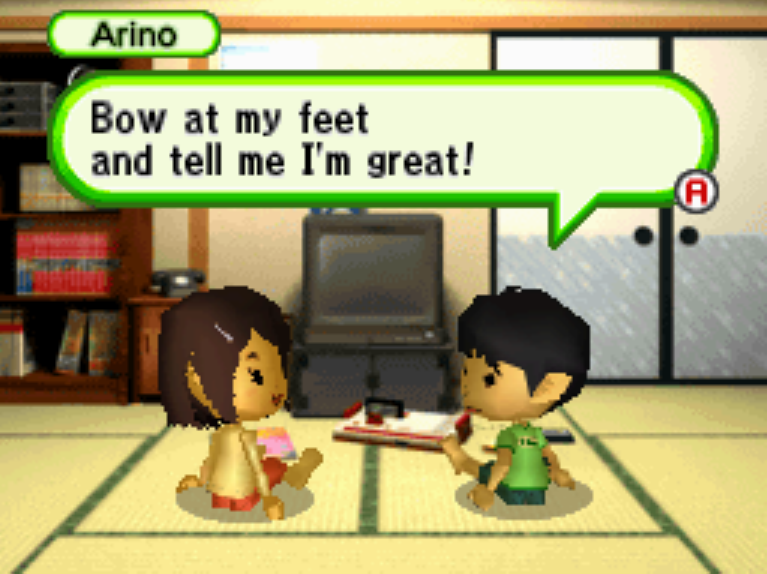
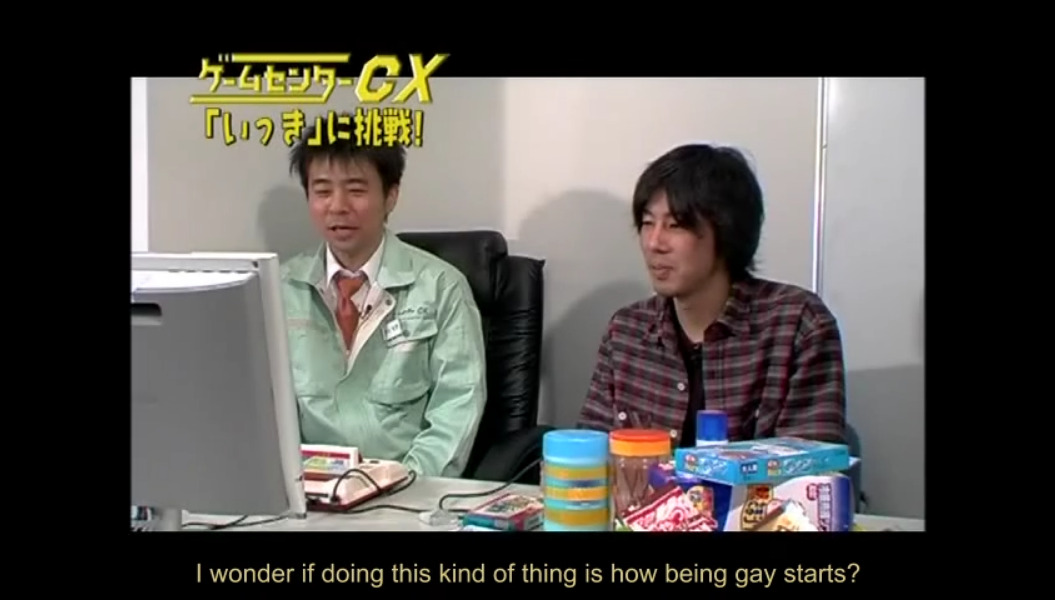
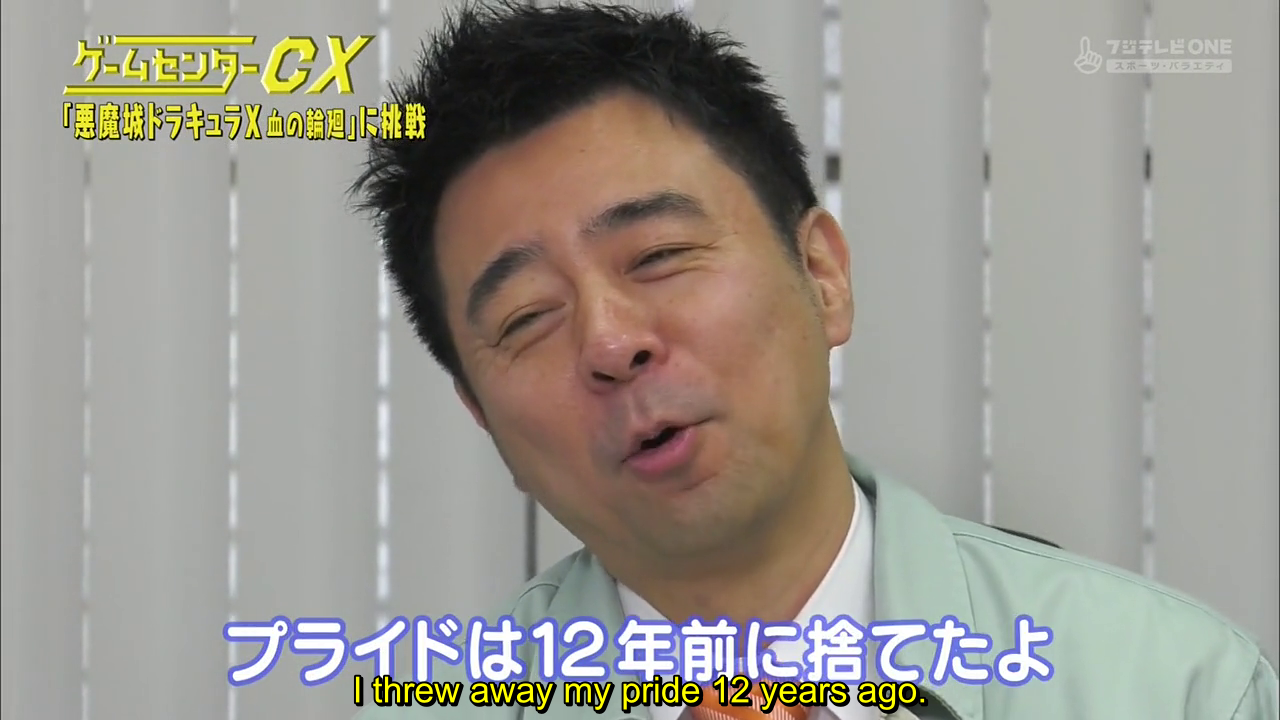
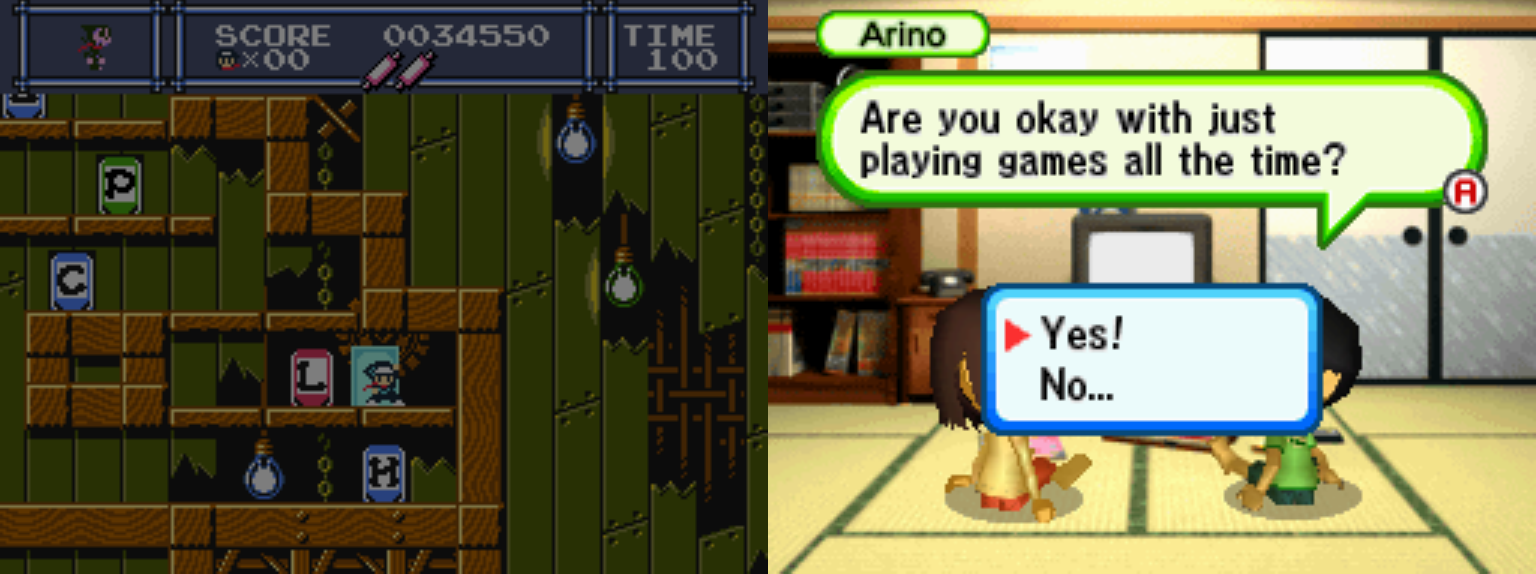
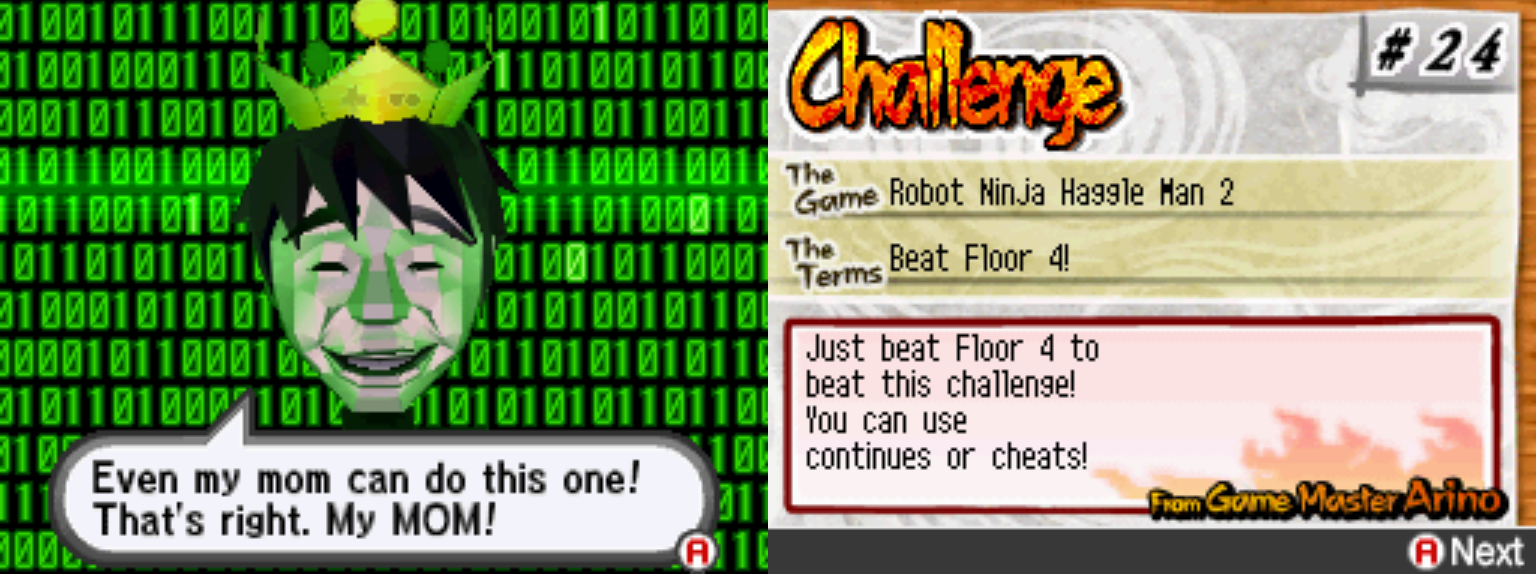
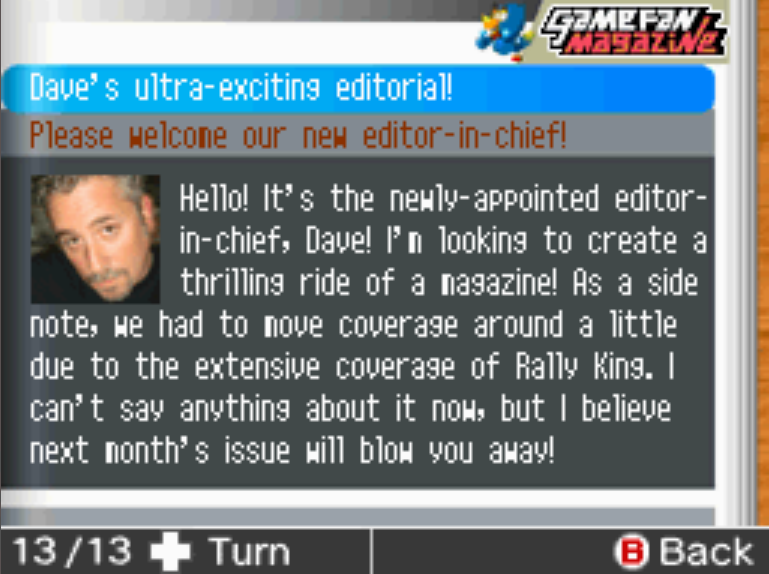
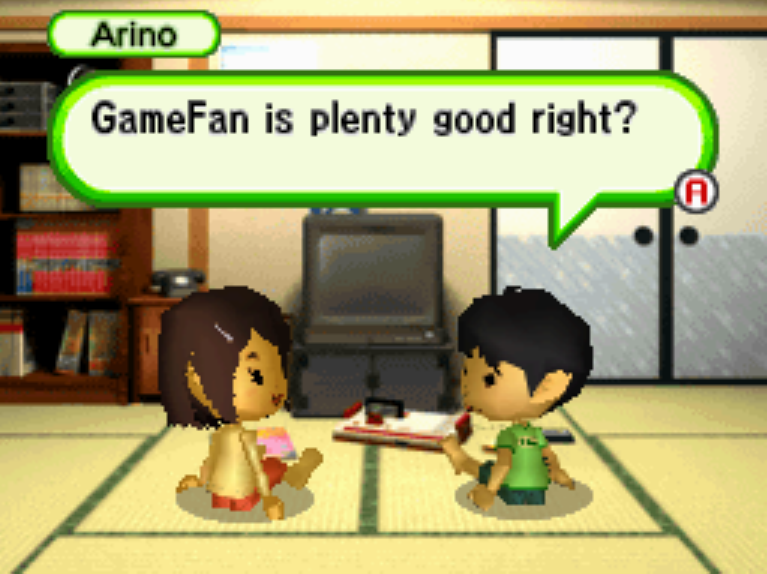
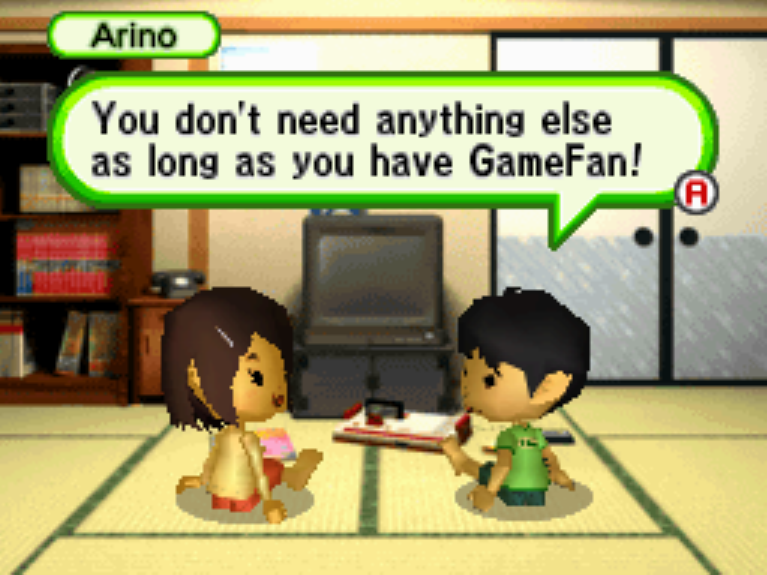
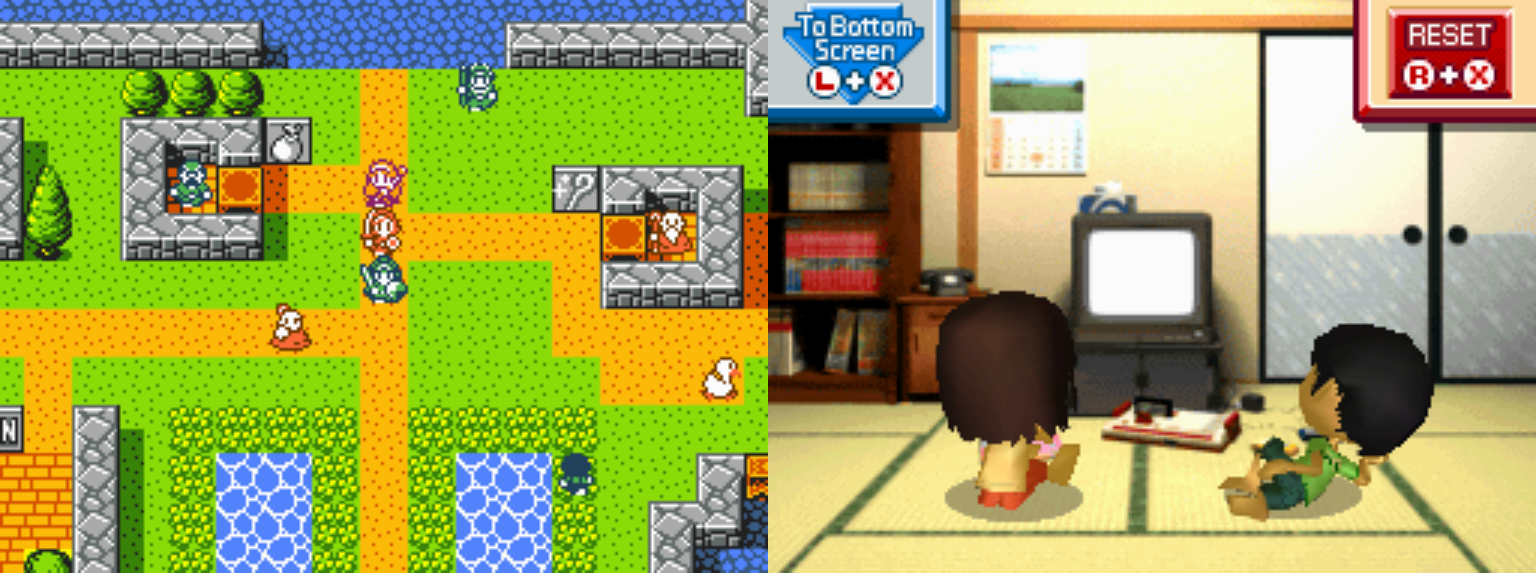
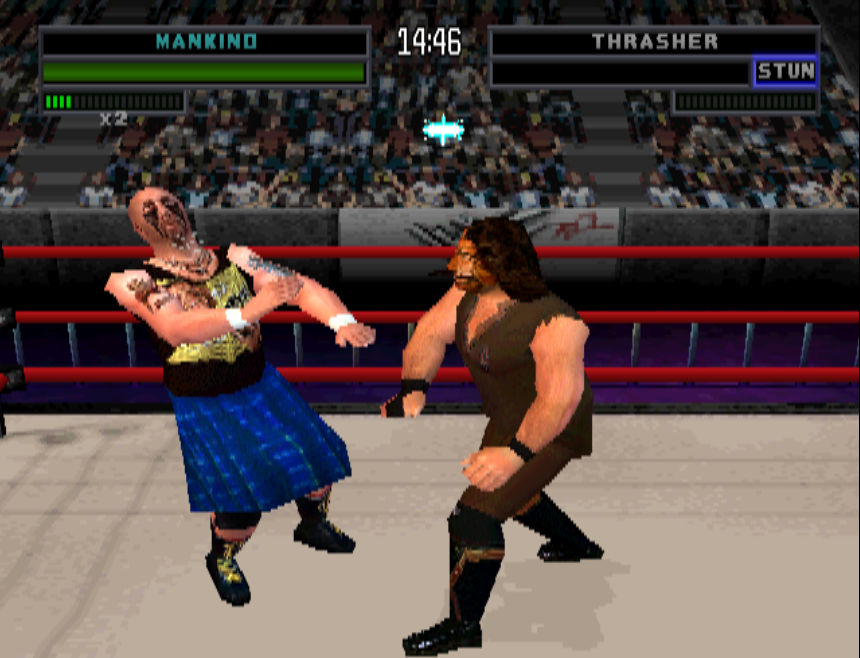
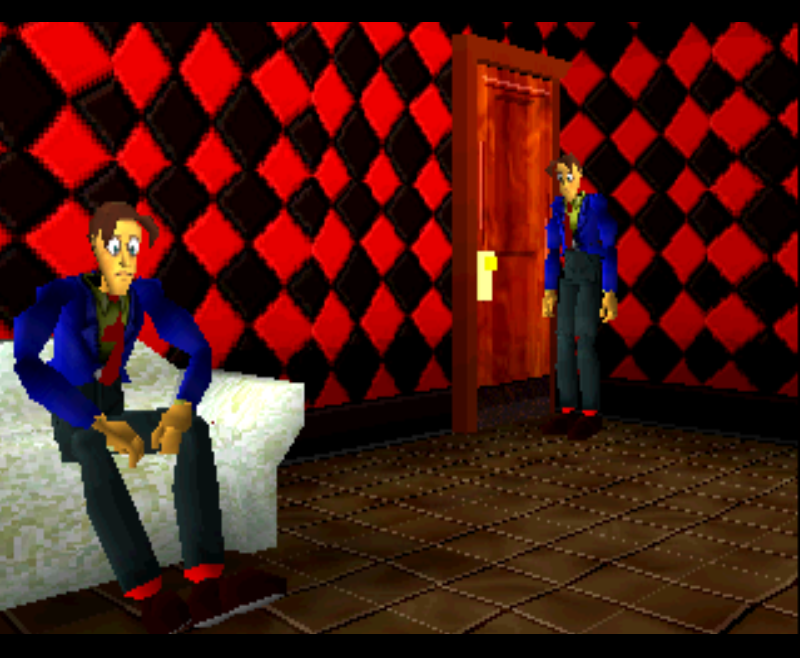
Comments